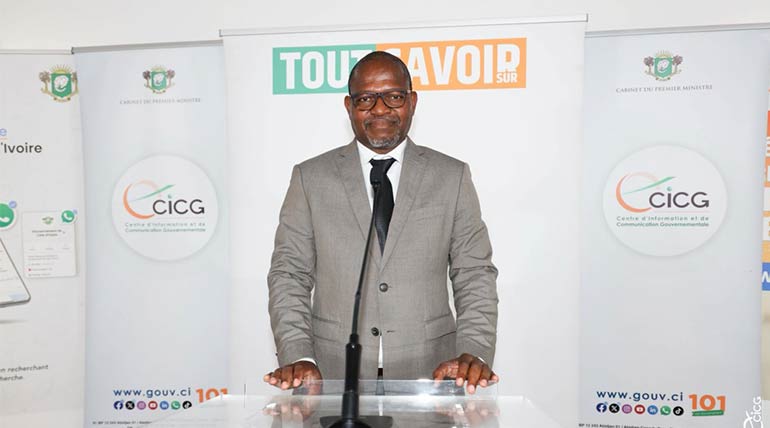(+225) 27 22 40 41 98 / 99
Sanitation: ONAD rejects the government’s efforts to improve the living conditions of the population

Sanitation: ONAD rejects the government’s efforts to improve the living conditions of the population
Abidjan – Konan Ahou, Director of Operations and Quality Monitoring at the National Sanitation and Drainage Office (ONAD), outlined the government’s efforts to improve the living conditions of the population.
This took place during the weekly “All You Need to Know About” press briefing held by the Government Information and Communication Center (CICG) on Tuesday, May 13, 2025, in Abidjan.
According to him, population growth and rapid urbanization have led to a sanitation deficit. To address this, the government initiated an institutional and sectoral policy study, which concluded that a reform of the sanitation and drainage sector was necessary.
The government has developed master plans for sanitation and drainage in cities. Thus, the number of master plans has increased from 7 cities in 2011 to 26 cities in 2024, and master plans for 5 cities are currently being developed.
In this context, six sludge treatment plants have been built to date, compared to none in 2011. “Before 2011, there were no sludge treatment plants in Côte d’Ivoire. This meant that the waste extracted from septic tanks was discharged directly into the environment, constituting a source of pollution. To date, we have 6 operational plants, and a project has begun that should result in the construction of 14 new sludge treatment plants by the end of 2026,” he stated.
With these achievements, the national rate of access to sanitation improved between 2011 and 2021, rising from 22% to 56%. In urban areas, the access rate increased from 39% to 74%, compared to 8% to 32% in rural areas.
Konan Ahou called on citizens to adopt responsible practices to maintain these sanitation facilities.
Source: Abidjan.net
